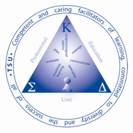



Tennessee State University
Professional Education Unit
Department of Education
Instructional Strategies
EDCI 3500
Spring Semester, 2013




Tennessee State University
Professional Education Unit
Department of Education
Instructional Strategies
EDCI 3500
Spring Semester, 2013
Instructor: Deborah Bellamy
Phone: Home-615-431-0254
E-mail: dbellamy@tnstate.edu
Class Days/Times: Monday: 9:15-12:15
Hansen, J. & Moore, K., D. (2012). Effective Strategies for Teaching in K-8 Classrooms Sage Publishers. CA.
Schell, E. & Fisher, D. (2007). Teaching Social Studies. Pearson, Allyn Bacon. New Jersey.
Catalog Description
Two questions that must be answered by a teacher each day are: “What will I teach?” and “How will I teach it?” This course is designed to introduce the art and science of elementary school curriculum design through theory, research, practice, personal experience, and the advice of experienced teachers. This course addresses the developmental needs of students in the elementary school curriculum. It includes discussion and reflection on current research and practice relative to teaching/learning objectives, planning, principles of instruction, interdisciplinary teaching, controversial issues and model for teaching academic disciplines. This course is designed to be taken in the second semester of the junior year as partial preparation for thoughtfully and effectively teaching students in K-6 classrooms. It includes a focus on both content and on teaching methods and structures uniquely suited to the social studies.
1a1. Selects goals and objectives aligned with the Tennessee academic content standards and state assessments.
1a3. Identifies goals and objectives that include the key concepts of the content area and are developmentally appropriate for all students.
1b2. Plans and designs instruction and evaluation aligned with state academic content
standards and state performance indicators that are developmentally appropriate
1b4. Designs instruction to cause students to integrate content knowledge, skills, and
inquiry across content areas.
1b5. Designs instruction that utilizes materials, human and community resources, and
technology in ways appropriate to the content area.
1c2. Plans and designs content instruction that is developmentally appropriate and includes strategies, activities, and assessments appropriate to the content and learner.
3a1. Aligns classroom assessments with state performance indicators and grade level accomplishments.
7a2. Demonstrates competence in development of and application of content-specific pedagogical skills based on Tennessee and specialized professional association (SPA) criteria.
Dispositions
D1. Plan: Value learners’ experiences and strengths as a basis for growth and their errors as learning opportunities.
D5. Model Professionalism: Consistently demonstrate caring, fairness, responsibility, professional dress and behaviors, appropriate interactions, professional standards and ethics, commitment to service, and respect for all learners and constituents.
Instructional Strategies
Lecture
Discussion
Technology (instructor)
Individual Presentations
Group Discussions
Group Presentations
Report/Paper
Exams
Field Experience Information
The field experience requirements for this course are facilitated through the co-requisite, EDCI 2200, Field Studies in Education.
Key Assignments
.Key Assignments: Unit Plan; Proof of Registration for Praxis II: PLT and Elementary Content Knowledge
Expectations and General Information:
1) Integrity - You are responsible for what you achieve in this class; therefore neither cheating nor plagiarism will be tolerated. Any material taken from another work must be documented, and in no case should one represent another’s work as one’s own, this includes information received from others during examinations or submitting another’s assignments, papers, etc. as one’s own. Students involved in collaborative research, to avoid questions of plagiarism, should exercise extreme caution. If in doubt, students should check with the major professor. In addition to the other possible disciplinary sanctions which may be imposed through the regular institutional procedures as a result of academic misconduct, the instructor has the authority to assign an “F” or a zero for the exercise or examination, or to assign an “F” in the course.
2) Classroom conduct – The instructor has the primary responsibility for control over classroom behavior and maintenance of academic integrity, and can order temporary removal or exclusion from the classroom of any student engaged in disruptive conduct or conduct in violation of the general rules and regulations of the institution. Students are expected to attend classes regularly and be on time. The instructor will keep an accurate record of class attendance. Excessive absence is defined as no less than one more than the number of times a class meets per week. If a student has excessive absences and does not have an excused absence from the TSU Health Center, or from a doctor, his/her final grade is lowered one letter grade. If a student is tardy four times without an excuse, it will count as one absence. If a student arrives in class twenty minutes late, without an excuse, he/she will not be counted present for that day. It is the student’s responsibility to withdraw from a course in which excessive absences have been incurred.
3) Official Course Enrollment - Students who are not on the official class roll may not remain in class. These students must leave class and may not return to class until they enroll in the course and their names show up on the official class roster. Please make sure you are in the correct section.
4) Disabled Student Services – Any student who has a condition which might interfere with his/her performance in class is required to contact the office of Disabled Student Services. This office is located in room #117 Floyd Payne Student Center. The phone number is 963-7400. They will provide you with a document stating what type of classroom accommodations, if any, are to be made by the instructor. The student is to give a copy of this document to the instructor no later than the end of the second week of class. Failure to do so will result in the instructor making no special accommodations of any kind.
Course Assignments
1. Professionalism: Class participation/discussions
Entrance and Exit tickets 25 pts.
2. Introduction to the TPA 50pts.
3. Curriculum and Instruction Position Paper 50 pts.
4. Literature Based Social Studies Lesson Plan 50pts.
5. In-class Teaching Project Presentation
(A Social Studies Lesson and reflection of a taught lesson) 25pts.
6. Interdisciplinary Social Studies Unit 100pts
7. Mid-Term 100pts
8. Final Portfolio 100pts.
A= 93-100%= 465-500 pts.
B=85-92% = 425-464 pts.
C=75-84% = 375-424 pts.
D=70-75% = 350-374 pts.
F=69% and below = 349 and below
Earn an extra 5 points toward overall grade if entire class completes the course evaluation
Additional Readings/Resources
General Elementary Professional Journals
Young Children
Childhood Education
Journals of the National Council of Social Studies (NCSS)
Social Education
Social Studies and the Young Learner
|
Date |
Assignments
|
|
1/21 |
Chapter 1 Establishing the Foundation for Teaching and Learning Introduction to the TPA
|
|
2/4 |
(lesson plan context for learning) Contextual Teaching ppt. Create the context for your lesson plan Position paper due
|
|
2/11 |
Chapter 2 and intro to Social Studies and its purpose in education What students should know about Social Studies Create a concept map for your unit Due 2/18
|
|
2/18 |
(lesson plan behavioral objectives) Teaching methods for SS. Concept map due |
|
2/25 |
Lesson plan ( language objectives, formative and summative assessment) Integrating SS and Literacy with technology Teaching vocabulary and reading using techniques |
|
3/4 |
Review for mid-term First lesson of Unit due
|
|
3/11 |
Spring Break Half Way!! |
|
3/18 |
Mid-Term Exam covering Chapters 1 Submission of professional language terminology due before exam
|
|
3/25 |
Social Studies Lesson Reflection bring evidence to document results with a plan according to the objective and student achievement
|
|
4/1 |
Questioning skills/differentiating instruction and diversity Co-Teaching PBL
|
|
4/8 |
In class teaching Geography
|
|
4/15 |
Presentation of PBL Co-Teaching
|
|
4/22 |
Unit plan due portfolio sign up
|
|
4/29 |
Portfolio reviews begin
|
|
5/6 |
Portfolio review |
Cooper, M. (2014), Classroom teaching skills (10th ed) Wadsworth Cengage Learning Belmont, CA94002-3098..
Duplass, J. A. (2008). Teaching elementary social studies: Strategies, standards and internet resources. (2nd ed.). Houghton Mifflin, Boston MA.